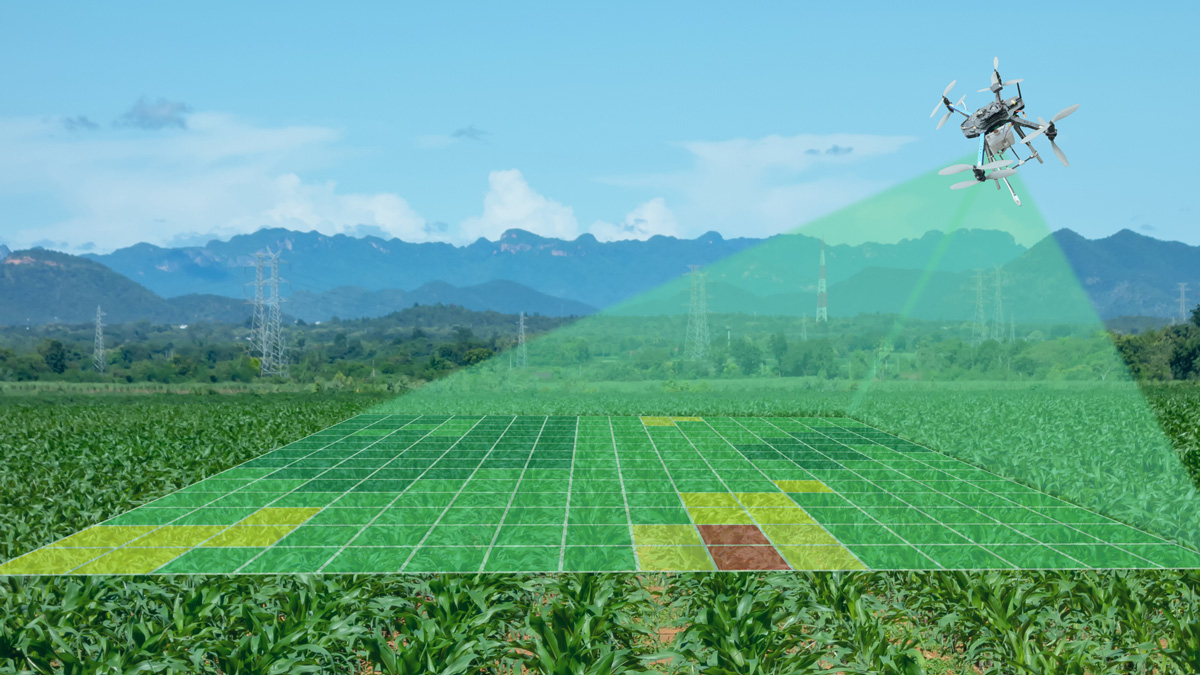The IPES-Food’s panel from 16 countries across 5 continents released a report in March 2021 in collaboration with the ETC Group. A Long Food Movement: Transforming Food Systems by 2045 maps out two very different futures for global food systems.
The need to transform food systems
Five years ago, a commitment was made to eliminate world hunger. Today, climate change, biodiversity loss and the rapid decline of soil fertility pose a growing threat to global food security.
In 2019, some 690 million people were hungry, and more than two billion lacked access to sufficient, safe and nutritious food. COVID-19 has increased the world’s hungry by about 130 million people and put one-third of food and farming livelihoods at risk. Transforming food systems is of the utmost importance.
Transforming food systems under “agribusiness-as-usual”
The first scenario IPES-Food considers in its report is one in which biodigital corporate giants drive the transformation of food systems. These companies unleash big data and digital DNA into the world’s pharmacies, food markets and financial systems. They draw upon ‘multi-stakeholderism’ to draw governments, scientists and some civil society organisations into a promise to use technology to remove the risks and people from food systems.
In this “agribusiness-as-usual” future, algorithms pinpoint the growing conditions for every square metre on Earth. Technology modifies crops, livestock and even ecosystems, using data to aim for optimal performance. Likewise, robotic tractors and drones replace humans for agricultural work; the farmers are forced off their land into ‘smart cities’ and e-commerce villages. Many low and middle-income countries put their faith in the ‘climate-smart’, ‘risk-free’ future this offers. Therefore, they hand over land, resources and data in the process.
Consequently, powerful governments and enormously wealthy corporations control resources and food supplies across vast economic corridors. This agri-business approach to transforming food systems will fail to solve the problems it faces today. Instead, it will cause rampant inequalities and deepen livelihood stresses and food insecurity. It will also create new environmental issues.
The Long Food Movement
The Long Food Movement is the alternative scenario for transforming food systems over the next quarter of a century. In this instance, civil society and social movements take the initiative. They collaborate across sectors, scales and strategic differences, working with governments and changing financial flows, governance structures and food systems from the bottom up.
There are four requirements for this to succeed:
- Collaboration across multiple scales
- Broadened alliances and restructured relationships
- Connecting long term commitments with wide range ‘horizon scanning’
- Preparedness for change and disruption
Modern food movements already have all of these ingredients. However, systematic deployment of all these factors is necessary for them to succeed.
The four pathways of the Long Food Movement
There are four interrelated pathways the IPES imagines for transforming food systems with the Long Food Movement. Firstly, food systems must be rooted in diversity, agroecology and human rights. This will increase their resilience, defend the rights of the marginalised and accelerate alternative markets and dietary shifts. Secondly, a civil society-led food system transformation needs to push back the corporate takeover of the multilateral system and force its own fundamental governance reconfiguration.
Thirdly, existing financial flows need redirecting. For instance, we need to impose heavier taxes on unhealthy and high-polluting elements of the agri-food business. Fourthly, civil society needs to reach new levels of collaboration to ensure the first three steps succeed. This may appear difficult given divergent priorities, competition for funding and other rivalries. However, many successful collaborations show this to be achievable. Meanwhile, compounding social and environmental crises only create new opportunities for cooperation.
Consequences of a transforming food system
The IPES report finds that the four pathways of the Long Food Movement could shift USD $4 trillion from the industrial chain to food sovereignty and agroecology. It would also slash the food systems’ emissions by 75 per cent and improve the wellbeing of billions of people. Naturally, it involves risks and has no guarantee of success. Nevertheless, it will help to keep divergent actors working towards a powerful plan of action towards 2045.
Moreover, taking no action is not an option. We are at a crossroads for transforming food systems. The vast societal changes COVID-19 has sparked show that fundamental change and adaptation is always possible given the right situation.


